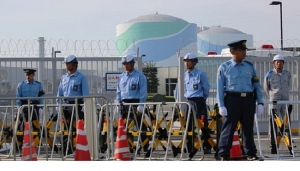
Abe and much of Japanese industry want reactors to be switched on again, in order to cut fuel bills, but opinion polls showed a majority of the public oppose the move after the nuclear crisis triggered by the earthquake and tsunami four years ago.
Kyushu Electric Power began the restart on Tuesday of the No. 1 reactor at its Sendai plant, a spokesman said. The reactor would take a few days to reach full power if all goes to plan.
The plant’s second reactor could be restarted in October, he added.
Japan’s 48 nuclear reactors were taken offline four years ago when a tsunami triggered by a massive earthquake sent a wall of water crashing into the Fukushima-Daiichi nuclear plant, causing a series of meltdowns.
Since then, the island nation has imported greater amounts of expensive natural gas and coal to meet its energy needs.
Japanese Prime Minister had pushed for a return to nuclear energy, arguing that, it is essential to the country’s economic recovery to reduce the skyrocketing utility bills associated with energy imports.
The head of Japan’s atomic watchdog said that new safety rules meant a repeat of the Fukushima disaster would not happen, but protesters outside the Sendai plant are not convinced.
Abe had said only reactors that were deemed to have cleared the “world’s most stringent regulation standards” would be allowed to restart.
The Sendai plant is the furthest away of Japan’s reactors from the capital Tokyo, where protesters regularly gather outside Abe’s official residence to oppose atomic energy.
The protesters in Sendai included Naoto Kan, who was Prime Minister during the Fukushima crisis and now fiercely opposes nuclear power.
In the worst nuclear disaster since Chernobyl 25 years earlier, the meltdowns at the Fukushima Daiichi plant caused a release of radioactive material and forced 160,000 from their homes, with many never to return.



